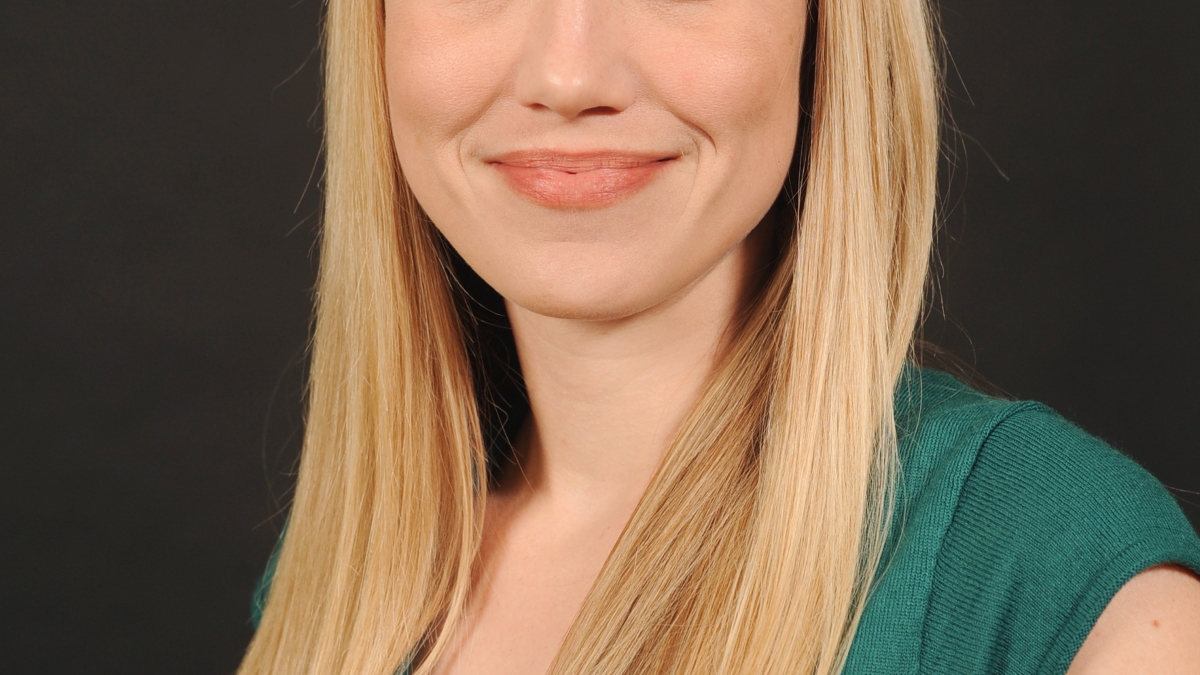Wutich named Arizona Professor of the Year

ASU's Amber Wutich has been named the 2013 Arizona Professor of the Year by the Carnegie Foundation for the Advancement of Teaching and the Council for Advancement and Support of Education.
Wutich, associate professor in the School of Human Evolution and Social Change at ASU, was selected from more than 350 top professors in the United States. A state Professor of the Year was recognized in 36 states during the competition this year.
The U.S. Professors of the Year program honors the most outstanding undergraduate instructors in the country who excel in teaching and positively influencing the lives and careers of students. It is the only national program to recognize excellence in undergraduate teaching and mentoring.
In a nomination letter submitted by President's Professor Alexandra Brewis Slade, director of the School of Human Evolution and Social Change, she states: “Wutich is an inspired and truly talented professor who has developed a unique and powerful approach to teaching that combines sophisticated methodology, hands-on instruction and perceptive mentoring. Her excellence and innovation has had a profound impact on educational excellence at all levels of our institution and well beyond.”
Earning this award is an inspiring recognition of the cutting-edge teaching that is accomplished at ASU, Wutich said.
“We have an extraordinary opportunity to change lives of many minority and low-income students,” Wutich said. “One of the ways that I try to do that is through curriculum design and teaching. I feel the university is an engine for social justice.”
Wutich grew up in a working-class family and knows the struggles that many students face as they try to make ends meet while striving for educational goals. “I see myself as the kind of student who I am now passionate about training,” Wutich said. “Many students are working one, two, sometimes three jobs to support their families and their college studies.”
Comments from students who have taken her courses include “the best course I have taken so far,” “definitely one of my favorite classes and professors ever!” and “this class helped me grow as a person.”
Challenging students to be active learners is a hallmark of Wutich’s teaching. Students undergo intensive training in research methods in her classes and thereby learn marketable skills that can translate into real jobs. Wutich teaches in three primary areas: anthropology, global health and environmental social science.
“A lot of my energy is focused on creating a classroom environment where people feel safe," she says, "where people feel free to experiment intellectually and where there are lessons being imparted that will stay with them.
“Anthropology may receive press implying that it doesn’t generate degrees that make students competitive on the market. I think we defy that stereotype at ASU.”
For instance, students who are part of the global ethnohydrology study-abroad program learn skills to collect high-quality data from 10 countries and can join a lab when they return to learn how to transform data into analysis through skills such as data entry, quality checks and identifying falsified/low quality data.
“I teach students to be passionate about knowledge and give them practical skills and tools to use after they graduate,” Wutich said.
Wutich has trained future doctors who are interested in social justice and want to study the social context of their patients, students who have earned advanced degrees in anthropology or global health and those who have transitioned directly into the job market in positions such as health data processing or designing new small-scale health systems.
“All of these students have found these skills useful and marketable,” she said. “A successful course is one in which I’ve gotten the students to really engage fundamentally in an intellectual way and where they feel they’ve taken ownership of their learning experience. Then they have the tools to use in the future to resolve debates through knowledge and academic research, as well as how people on the ground feel.”
Research endeavors that Wutich is involved in include how people survive under conditions of severe scarcity and environmental justice. She has led projects such as examining water insecurity in Cochabamba, Bolivia in 2000 that led to inflated prices and conflict when the water system was privatized.
“As an ethnographer, I live with the people I study and experience life as they do. For teaching, this is really powerful,” Wutich said.
Students are oftentimes involved in Wutich’s research, and she has co-authored about 20 papers with students, including one paper she wrote with an undergraduate.
Wutich shares her teaching methods as a faculty instructor for the National Science Foundation (NSF) Methodological Institutes in cultural anthropology, where she uses a “teach the teachers” model to grow university-level research education, and she teaches ethnographic field methods and qualitative analysis for the NSF’s programs in research methods in cultural anthropology.
The Professor of the Year program is sponsored by the Carnegie Foundation for the Advancement of Teaching, an independent policy and research center that supports transformations in American education and the Council for Advancement and Support of Education, a professional association serving educational institutions and advancement professionals at all levels..”
The School of Human Evolution and Social Change is an academic unit in the College of Liberal Arts and Sciences.